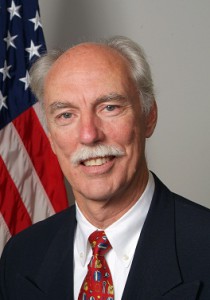
Dr. Tom McLellan, Professor, Dept. of Psychiatry, and Director, Penn Center for Substance Abuse Solutions
Addiction is a disease that is hard to understand. Particularly vexing is that so many of those who so obviously need care deny the existence of a problem or the need for treatment. Those who finally enter care usually have serious, chronic addiction, many co-occurring problems and a guarded prognosis. Are these features specific to addiction or are they expectable features of any illness whose care has been systematically segregated from the rest of medicine?
Imagine if we began to treat diabetes in a system such as we have designed for addiction. First, insurance would restrict treatment only to the “truly diabetic,” those who had lost toes or some of their vision. Prevention and early interventions so common in primary care would not be reimbursed and thus rarely practiced in such a system. Hence, most of those entering treatment would be very overweight, have multiple co-occurring physical and psychiatric problems and a guarded prognosis. Even effective treatment has limited effects on very severe cases.
These are typically not the kinds of patients that health care professionals aspire to treat. So very soon it would be considered more convenient for these unattractive, severely affected diabetic patients to have their own special building, perhaps near the edge of the property, down by the boiler plant. These are not the kinds of treatment settings that inspire career goals in young health care professionals. There would be little interest among faculty in teaching courses about this “special condition.” In turn, funding would also be segregated through “carved out” reimbursement plans designed for these “specialty” programs.
An important perceptual phenomenon would also take place concurrent with this segregation process. These very ill patients and the segregated, specialty treatment settings would come to define the illness of diabetes in the eyes of health care establishment and the public at large; and it would not be a favorable image. Individuals who were early in the course of diabetes would find it impossible to imagine that they had anything in common with those in treatment. This would foster denial and treatment refusal until they could literally no longer live without it.
There are two points to this exercise. First, while it is largely true that the addicted individuals currently in treatment have been in denial, are seriously and chronically affected and are difficult to treat; this may have less to do with addiction than with the segregation of the treatment system. Second, with the advent of the Parity Act and Health Care Reform this segregation will come to an end. The full spectrum of “substance use disorders” – not just “addiction” – will be eligible for treatment. Prevention, early intervention, medications and support services will be reimbursed and will gradually become accessible through primary care providers in virtually all health care facilities and settings. These services will not be restricted to just the most severely and chronically affected; early interventions and new medications will focus on those with emerging use. It will be interesting to see how the perception of this illness and its treatment changes with this new system integration. Maybe, patients won’t have to “bottom out” before they are willing to seek treatment?
Dr. Tom McLellan
Professor, Dept. of Psychiatry, and Director, Penn Center for Substance Abuse Solutions
Published
April 2011
 Get Support
Get Support
